“The most disrespected person in America is the Black woman,” is one of the many headlines that floats across the screen, and so begins the documentary Subjects of Desire by Jamaican-Canadian director Jennifer Holness.
The film is an exploration of modern-day black womanhood, in all of its glories and challenges, explored through the lens of the 2018 Miss Black America pageant. The film follows the contestants as they prepare for the event, and interweaves interviews with prominent scholars in gender and race—giving us academic, as well as pop cultural views, about what it means to be a black woman in the year 2021.
Being a black woman myself, I was very excited to watch this film. I was eager to see what I could learn about my own black womanhood as well as black womanhood in general. I felt most drawn to the interviews done with groups of young black women and girls. These discussions proved to be the most bracing and honest throughout the film and I often found myself yelling out “YES!” when an interviewee made a particularly affecting point.
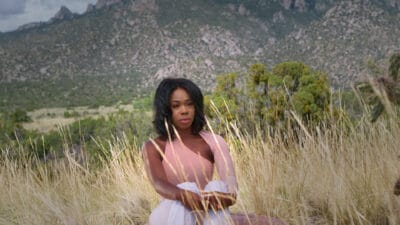
Alexandra Germain in SUBJECTS OF DESIRE
One quote that struck me harder than almost anything else in the film was this: “I had the idea there was only one type of beautiful.” Hearing that took me right back to my teenage self, when I grappled with the struggles of my hair texture. Although I have often been told by other black people that I have “good hair” I struggled with it in high school. My school didn’t have many other black people and I longed to have long, loose curls that went down my back rather than up and out in the way that my actual afro does. This culminated in me often only wearing my hair straightened or in a ponytail for most of high school. All black women have an ongoing and active relationship with their hair and I’m no exception. I’ve been through it all: long hair, short hair, shaved sides (I’ll have you know I did it before Skrillex), relaxed hair, natural hair. This film made me feel a part of a sisterhood spanning back throughout history.
Watching Subjects of Desire was an eye-opening and fascinating experience. This was the first time I had seen a documentary about this subject and there were times when I felt stories from my own life were being reflected back to me on screen. The segment discussing colourism, in particular, felt like a conversation I have had many times with my friends and family; in Black society, lighter skinned individuals are seen as the standard of beauty and the film doesn’t shy away from this topic.
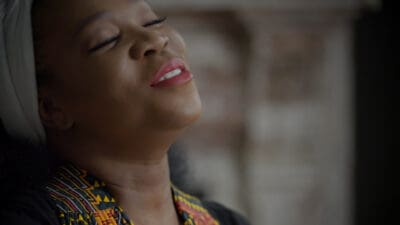
India Arie in SUBJECTS OF DESIRE
India Arie appears and reflects on her experiences with colourism in the music business: “Do you know how many people aren’t going to be heard because they aren’t the right shade of brown?” When the film went further and discussed how even Black men degrade black women through colourism I found myself nodding along furiously.
High profile black men are rarely seen to be dating a dark-skinned woman, it is far more common to see your favourite actor or athlete dating a light-skinned woman or a white woman with “black features” (full lips, big bum) that probably wouldn’t be seen so favourably on a dark-skinned woman. I also appreciated the conversation about how our modern beauty standards push Black women and white women into what CBC’s Amanda Parris calls a “beauty binary” with white women on one end and black women on the other. It was impossible not to call to mind the legions of “slim thick” white women I see on Instagram daily, some of whom make their living off of appropriating black beauty aesthetics (for example full lips and boxer braids aka cornrows). Everyone suddenly wants to look like a black woman…without actually being a black woman.
There were also parts of Subjects of Desire that I struggled with. During a segment talking about cultural appropriation Rachel Dolezal is interviewed. For those who are lucky enough to not know who she is, Dolezal is a “transracial” white woman who identifies as black. Dolezal had been living her life in Washington state as a black woman, telling people that she was biracial. But in 2015 Dolezal was “outed” as white after a picture of her white parents on her Facebook page was found by local media.
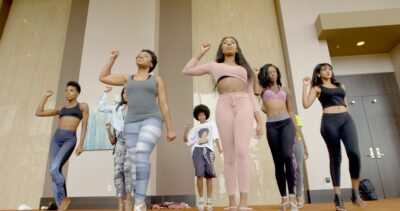
Still from SUBJECTS OF DESIRE
Dolezal says in the film that what she did was not cultural appropriation because she “cancelled her white privilege” and that she “sees inspiration in blackness”. She later returns in the film when the topic of black men preferring white women is brought up. Dolezal recalls that when she was married, her (black) husband didn’t want her to present as a black woman and wanted to see her as his white trophy, even going so far as preventing her from getting box braids. She happily remembers that the first thing she did after getting divorced was go to the salon to get braids put in.
Personally, I really disliked seeing Dolezal’s voice centered in a film about black women. Despite what Rachel Dolezal may tell herself in the morning, she is not black, and it was frustrating to me that the film did not challenge her about this directly when she was being interviewed (had I been there I definitely would have given her a shake while yelling “you are white!”). The story of her marriage was interesting but watching her lament that she felt “crushed into the white mould” when she is, in fact, a white woman left a bad taste in my mouth. And while I agree with India Arie’s statement that Dolezal is not “presenting” as black for a bad reason, she is still being disingenuous.
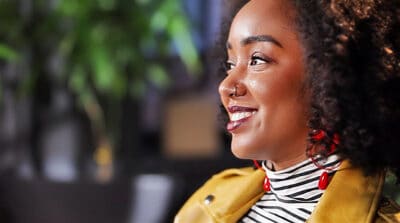
Amanda Parris in SUBJECTS OF DESIRE
Ryerson’s Dr. Cheryl Thompson says it best in the film: “…just as we can’t deny the fact of our birth, nor should [she]….you can choose to live as black…but stop denying your lineage.” She goes on to state that black people are never afforded the right to deny that we are black (usually to our detriment) so why should Dolezal be afforded that same right? She is living her life in a way that allows her to pick and choose the parts of blackness that seem favourable to her, and I feel this is where she needs to be corrected. She may think that she has cast off her white privilege but at the end of the day larger society will see her as white and treat her with all the benefits that come with that. Having her hair in some braids won’t change that fact.
Despite the Dolezal of it all, I did enjoy this documentary; I enjoyed learning about the Miss Black America pageant, and seeing how beauty pageants can be a force for good in the world at times. Seeing an exploration of both positive and negative portrayals of black women in media throughout history felt both educational and highly personal. I also loved seeing Canadian media figures such as Amanda Parris and Jully Black, as the American experience is so frequently centered as the be all and end all of black experience. I definitely encourage everyone to see the film when they can.
Subjects of Desire is screening (virtually) at this year’s Hot Docs film festival from April 29th to May 9th as part of the Big Ideas Speaker Series.
Evan Ross is a writer who lives in Toronto. She can be found on twitter yelling into the abyss @sclubevan_


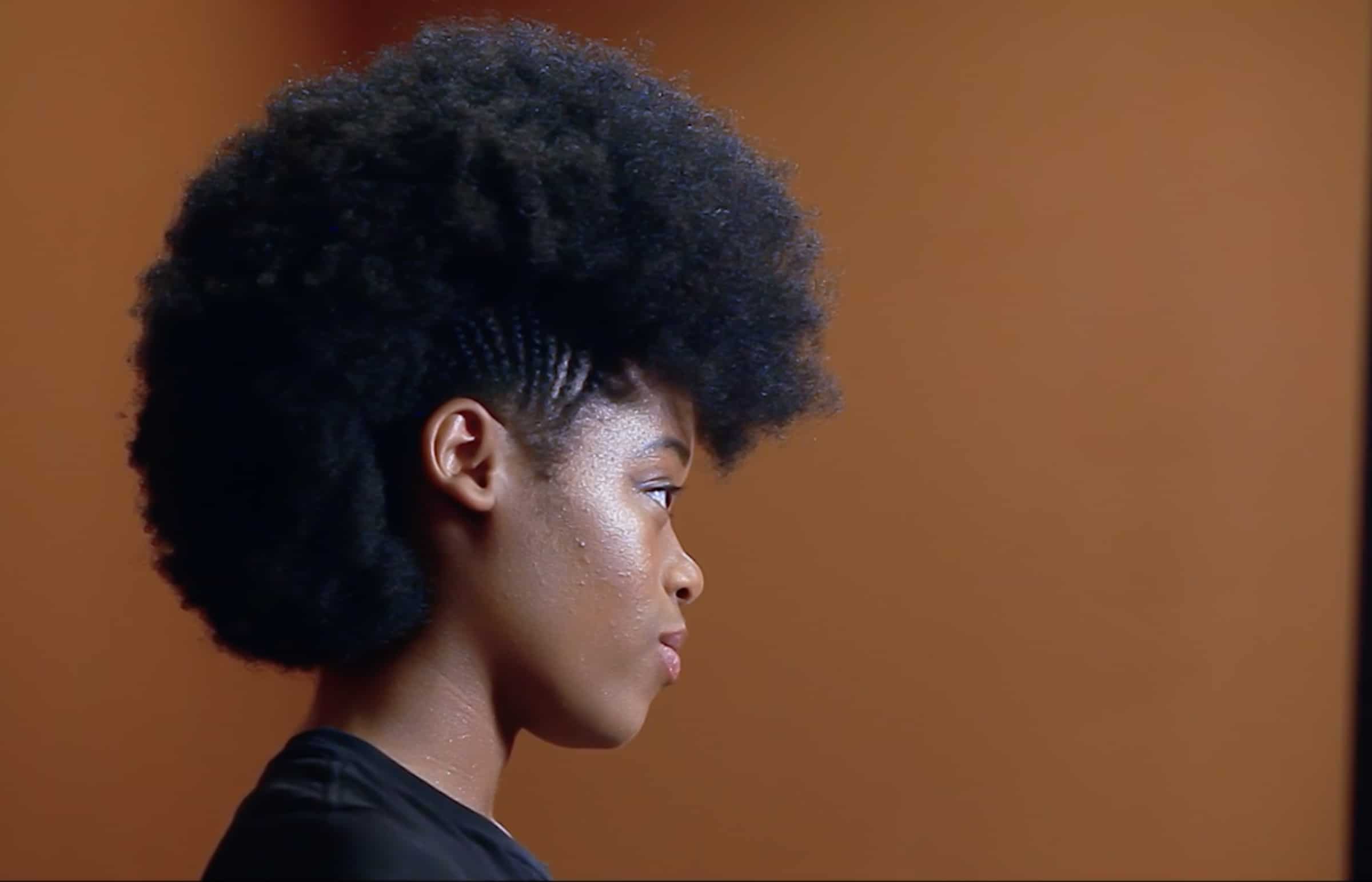
 Follow Us On Instagram
Follow Us On Instagram
